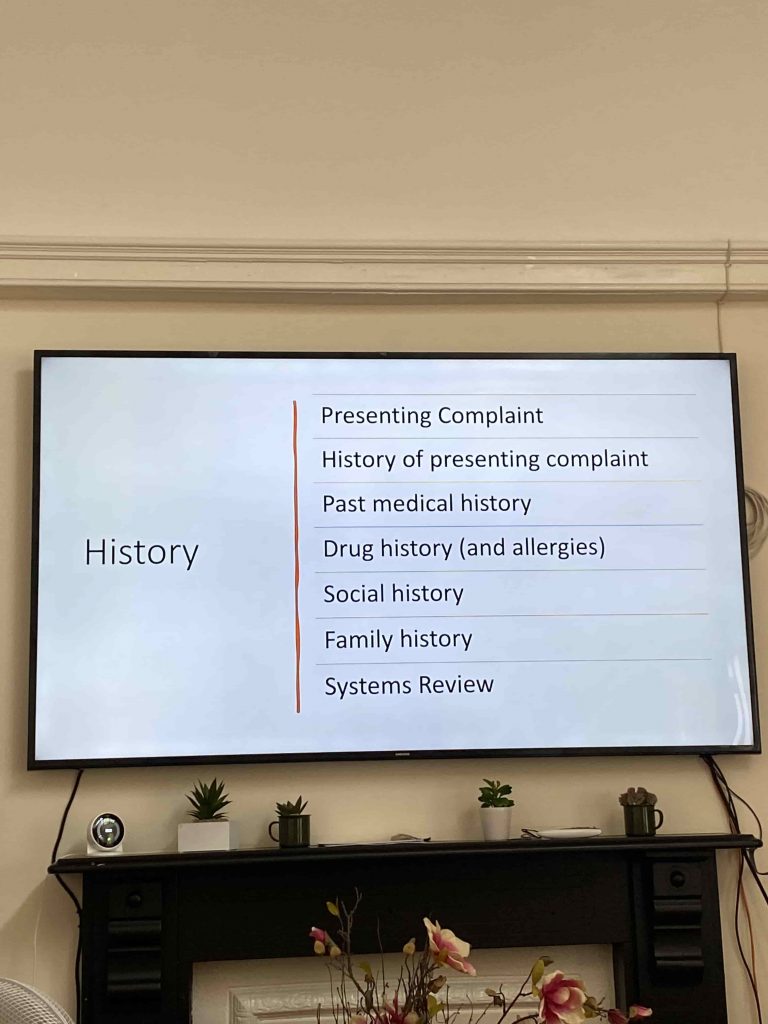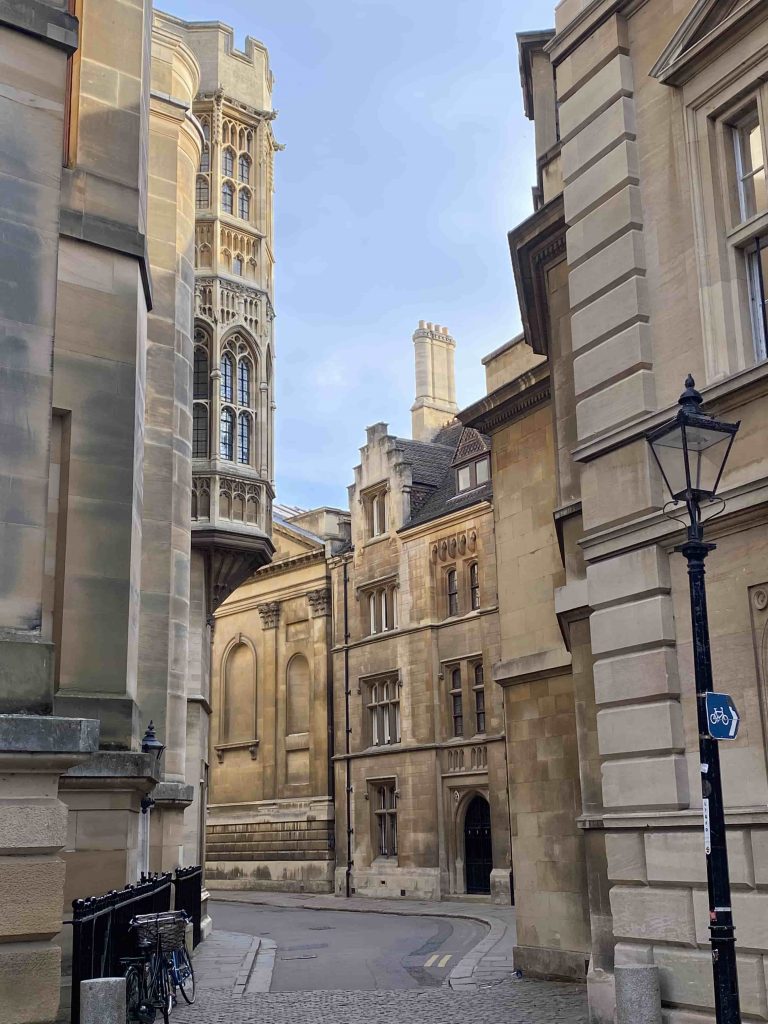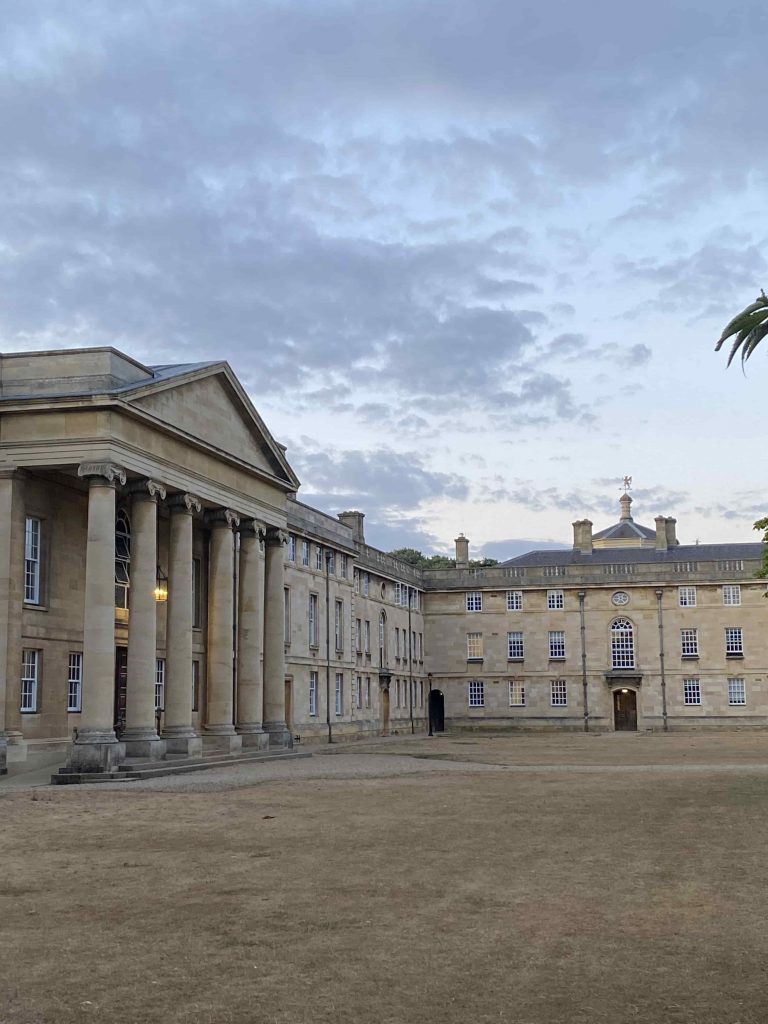Cambridge doctor talks medecine
Doctor Katie Nadarajah is a Cambridge alumni, who now works in the NHS. Having had the pleasure to meet her and learn from her, I decided upon writing this article in the hopes of helping anyone considering medicine.
LAURA: What’s one thing you’ve learned from a fellow student and not from a professor?

Doctor Katie Nadarajah : Good question. A lot of the information you’ll get is new so talking to fellow medical students around it always gives you a fresh perspective as they might be able to explain things in a slightly different way to your lecturers.
I think it’s also important to find a buddy for when you practice examining on each other, as medicine can be quite physical. They can give you feedback as to what your patient manner is like: Are you gentle? Are you kind? As well as have you missed anything on the examination?
Fellow medical students also help you to decompress so that the medical school experience is enjoyable. When you laugh and you joke, that’s sometimes the most memorable thing.For example, if you are learning something, and it’s particularly intense, when you have a laugh about it, that actually sticks in the mind for a lot longer.
LAURA: Speaking of fellow medical students, how do you feel about the stereotype of doctors struggling with a social life outside of the hospital? Did this thought weight on you while applying for medicine?

That’s actually quite funny, because the notion I had was that doctors work hard, play hard. So very different. As a medical student, I didn’t come across the not being able to enjoy yourself. It was much more of the notion that medics generally work really hard. They are usually up first thing for lectures in the morning. Whereas other subjects would have a nice lay-in and possibly go to a lecture in the afternoon. But we were known for partying as well. So, I think university is what you make of it. Every university is different. One of the good things about Cambridge is that it has the preclinical years for the first three years of undergrad. So I didn’t have that pressure of having to get up the next day and go into a hospital. You weren’t in charge of any patients. You could be more of an undergraduate and be more relaxed in that sense.
But I also think that there’s something specific about the people who go into medicine. They like interacting with people, and they have usually already done a lot of extracurricular activities (side note: these play a significant role in getting into certain medical schools in the first place). They’re used to trying to cram that in with their school work.
LAURA: What was then your way of coping with the constant pressure and stress of a medical student?
In Cambridge what we tended to do in clinical is you would be based in different hospitals for a couple of months and then move around to the next one. I would hate the day before every move, because I hate change. However, the day after every move, you’d be like, oh, this is not so bad as it wasn’t unknown to you anymore. So keeping a bit of perspective is one. Second, engaging in things that are separate to medicine. Especially when you are still a medical student (you’re not doing overnight shifts, nor 12 hours on call) so you have a lot more spare time.

LAURA: Was there a time when this simply wasn’t enough anymore? Did you ever seek professional help? Especially after graduating, because of, let’s say, this new responsibility placed upon you?
No, I didn’t have to seek professional help. I think the big factor was that I was able to manage the workload. In turn, this allowed me to continue the things I enjoyed. But there is always support (either psychological services, or free support courses to attend).
In the UK after qualifying (graduating) you first complete two years of foundation training. Meaning without a specific specialty. You’ll do the different wards and you’ll be working in a team: you, another doctor, one or two junior doctors (that are more senior than you) and then your consultants. There will be days when people are on leave or sick and you’ll be the only one on the ward. It’s in those situations that you learn how to call other people for help.
There was this situation, the first time I was on call and the bleep wouldn’t stop going off. I had tears in my eyes at seven o’clock at night thinking, what will I do? There was so much going on. The phone wouldn’t stop ringing. And all the jobs I had to do started piling up. It was my friends, who ‘rescued’ me. They were brilliant. They came in by themselves and said, I’ll do this and this job and you do this and that.
No matter how good your other friends are, if they’re not medics, they won’t be going through the life and death situations you are. Coming back from a bad shift and being able to explain to someone who understands what’s going on is a huge advantage.
LAURA: Thank you, that was very insightful, I’ll move on to more of a niche question now: could you tell me what’s your experience with patients lying to their doctors? Particularly from the geriatric perspective?
Part of your job as a doctor is to build up a relationship with your patients, in which they trust you. If you have a strong inclement that they’re not telling you the truth, there are ways of making them open up to you. When it comes to the elderly they usually have this recognition that as you get towards the end of life, what’s the benefit of lying. Then, what is lying? If you’ve got someone with dementia, they are telling you what they believe happened because their memory isn’t accurate.

There is also your way of phrasing that plays a key part. You tell them: “Tell me the truth, I’m not going to judge you. This information helps me work out what’s going on with you.” By putting the responsibility on them you accentuate how important is the doctor patient relationship. It’s not how it once was: whatever the doctor says is right. It’s team approach, because if the patient doesn’t want to do what you suggest, they’re not going to do it. Yes, you can prescribe them all the tablets in the world, but no you can’t force them to take them once they get home.
LAURA: Lastly, what would you tell your first-medical-year self?
I’ve never been asked that before. What would I say? Okay, during exam time I was rowing and I wasn’t sure whether to keep rowing, worried it would interfere with my exam. My parents gave some fantastic advice: just do your best and you’re only going to get to row once.
I’ve always thought if someone can do that, then why can’t that person be me? So sort of strive high don’t underachieve. In every sense, so don’t underachieve not only in just the academic stuff but as well in other things like making friends.
When applying to a country think of which healthcare system you would want to learn in and which type of learning suits you.
There is no best university. Choose a university that’s compatible with you and your personality, because then you’re going to be more at ease and get the most out of it.
You can always change your mind.University is not a prison. For example, don’t say: I must always do cardiology. You can change your mind to ex. general medicine of all routes.
Laura Dębska/ S7PLA / EEB1 Uccle




